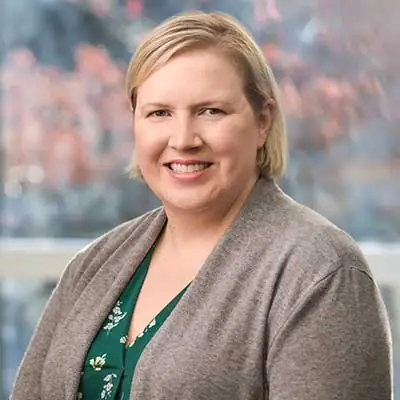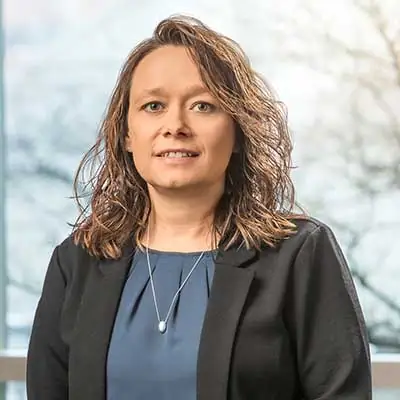The Children’s Advocacy Team is dedicated to ensuring that every child is safe and healthy, and that the adults in their lives have the resources they need to ensure that.
If there are concerns for trauma in a child’s life, we are here to help. In addition to providing treatment and support, we also provide education for caregivers, parents, and other adults in a child’s life about meeting medical, physical, and psychosocial needs. We specialize in distinguishing between accidental injuries, medical conditions, and abuse or neglect.

In Nebraska, any adult who suspects abuse or neglect is required to report it. The hotline number is 800-652-1999.
The Children’s Advocacy Team includes a pediatrician, nurse practitioner, nurses, social workers, and dietitians who specialize in cases of childhood abuse or neglect. They are dedicated to helping children receive the care that they need and deserve.
We work in conjunction with the child’s primary physician and other subspecialists to provide the highest level of care and coordination.
Make An Appointment
Clinic Hours
Omaha: Tuesday 8 a.m. – 5 p.m. | Thursday 8 a.m. – noon | Friday 1 – 5 p.m.
Lincoln: Second and Fourth Wednesdays 9 a.m. – 4 p.m.
Phone 402-955-6250 | Fax 402-955-3991
Conditions We Treat
-
Complex Psychosocial Situations
An important piece of a child’s ability to thrive is having their basic needs met and receiving consistent care from a loving parent or caregiver. This helps provide a safe, stable environment in which a child can feel comfortable to continue their emotional, social, and physical growth.It is also important for a child to have positive interactions with a wider support system and their community. If a caregiver is unable to provide for a child’s basic physical, medical, emotional, social, and educational needs, this may become a concern for neglect.
Our staff understands that sometimes families may struggle with stressors, including housing or financial instability, complicated family relationships, limited supports, problems at school, child or caregiver health/mental health instability, or substance use, among other things. These stressors can make it difficult for a family to find stability and ensure safety for a child.
Our team partners with the family in order to identify barriers and concerns that can possibly be addressed in the clinic or between clinic visits. In the case of more serious concerns, other supportive referrals or interventions can also be pursued.
-
Failure To Thrive/Malnutrition
Failure to thrive means a child’s weight and height are not increasing as they should for a child of their age and sex. Consequences of failure to thrive include:- Extremely short stature
- Developmental delays
- Immune suppression
In some cases, failure to thrive (or similar symptoms) is caused by other medical conditions, such as Down’s syndrome, brain damage, metabolic disorders, cerebral palsy, heart or lung problems, or anemia. Our team will look at all aspects of each child’s situation, including specific symptoms, medical history, mental health, and home environment, to assist in providing individualized treatment and support.
-
Physical Abuse
Physical abuse means deliberate physical injury to a child that may result in bruises, broken bones, or other injuries.Our team provides a comprehensive assessment when there are concerns for physical abuse to ensure that the child is safe, and that any medical conditions have been evaluated. This may include laboratory testing, X-rays and scans, social work assessment, and communication with other physicians and investigators.
Other conditions we treat include:
- Drug exposure
- Neglect (including medical neglect)
- Sexual abuse (in partnership with Project Harmony)
What Sets Children’s Apart?
Suzanne Haney, MD, FAAP, is the only board-certified child abuse pediatrician in the state of Nebraska. The Children’s Advocacy Team, established in 1998, was one of the first hospital child protection teams in the country. This multidisciplinary team reviews all suspected cases of child abuse and neglect throughout the Children’s enterprise.
The Children’s Advocacy Team participates in quality improvement projects to further standardize how we treat abuse and neglect cases. This involves ensuring that all Children’s providers can recognize signs and know exactly what steps to take if they suspect abuse or neglect.
Children’s Nebraska has a partnership with Project Harmony — an advocacy center in Omaha that has been accredited by the National Children’s Alliance as a center that provides care to children who may have been abused or neglected. Dr. Haney is the medical director at Project Harmony. The staff at Project Harmony work with investigators to conduct interviews and medical exams for suspected incidences of abuse or neglect, as well as advocate for the children they serve.
What To Do If You Suspect Child Abuse
It’s not always easy to spot abuse or neglect — but knowing exactly what you’re looking for can make it a little bit easier.
Signs and symptoms that a child may be abused or neglected include:
| Physical Signs | Behavioral Signs |
|---|---|
| Inability to gain weight (especially in infants) | Bedwetting in a child who has already been potty-trained |
| Pain or bleeding | Poor performance in school |
| Unexplained injuries (burns, cuts, fractures, bruises, abdominal or head injuries) | Attempts to run away from home |
| Sudden, dramatic weight loss | Withdraws from social settings |
| Big appetite and stealing food | |
| Scared of adults, parents, or going home | |
| Lacks hygiene or weather-appropriate clothing | |
| Fear, anxiety, depression, or nightmares |
If you come in contact with a child that you suspect may be abused or neglected, it’s important to know the proper steps to take to protect that child. Each state has their own laws about reporting abuse.
Reporting Child Abuse Or Neglect
You do not need to be certain that abuse or neglect has taken place to report it — you just need a suspicion.
There are several ways to report abuse or neglect:
- Call the local child abuse hotline:
- Nebraska Child Protective Services Hotline: 800-652-1999
- Iowa Department of Human Services Hotline: 800-362-2178
- Call your local police department
- If the child is in immediate danger, call 9-1-1
When reporting suspected abuse or neglect, it is helpful — but not required — to have the following information available:
- Address of the people involved
- Name of the people involved
- Phone number of the people involved
- Birthdate of the child
- Age of the child
- The child’s school

- Follow your instincts and report your suspicions. In 2017, the Children’s Advocacy Team handled more than 1,020 cases of suspected abuse, neglect, or failure to thrive — and the majority of those cases were confirmed.
- Reporting suspected abuse or neglect does not put you at risk. You can make a report anonymously.
- Keep on reporting suspected cases, even if a previous report didn’t meet the criteria for abuse and neglect. Multiple reports over time can establish a pattern, which can lead to further investigation — and getting a child the help they need.
The Children’s Advocacy Team meets every week to review reports of abuse and neglect. We follow all reporting laws, which can be found on the Nebraska Department of Health & Human Services and Iowa Department of Human Services websites.
For more information about the reporting process, please call the Children’s Advocacy Team at 402-955-6250 or the Children’s Social Work Department at 402-955-5418.
Foster Care Clinic
There are times when a child may need to be placed into foster care. This may be due to abuse or neglect, but the specific situations can vary greatly in each case. It may be for a very short period of time, or more extensively.
Foster care children and families are referred to the clinic from Project Harmony and state agencies.
One of the goals of the Foster Care Clinic at Children’s is to help better meet the medical and behavioral health needs of children placed in foster care in the Omaha metro area. In a single visit, we provide physical examinations, psychosocial assessments, developmental screenings, dental assessments, visual evaluations, and nutritional evaluations as needed.
The Foster Care Clinic is open Tuesday mornings from 8 a.m. to noon. Families should arrive by 8 a.m. and expect to stay up to 3 hours.
The birth family, foster family, caseworkers, and primary care provider all receive a report on the results of these examinations. A follow-up appointment is then scheduled with the primary care provider.
Additional Resources
For more information on child abuse and neglect, we recommend these sites:
Our Specialists
What To Do Next
For Patients
Please do not hesitate to contact the Children’s Advocacy Team at 402-955-6250 for more information.
For Referring Providers
The Physicians’ Priority Line is your 24-hour link to pediatric specialists at Children’s for emergency and urgent consults, physician-to-physician consults, admissions, and transport services. Call 855-850-KIDS (5437).
Learn more about referring patients.




